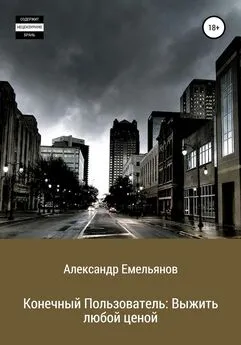Пользователь - o 3b3e7475144cf77c
- Название:o 3b3e7475144cf77c
- Автор:
- Жанр:
- Издательство:неизвестно
- Год:неизвестен
- ISBN:нет данных
- Рейтинг:
- Избранное:Добавить в избранное
-
Отзывы:
-
Ваша оценка:
Пользователь - o 3b3e7475144cf77c краткое содержание
o 3b3e7475144cf77c - читать онлайн бесплатно полную версию (весь текст целиком)
Интервал:
Закладка:
that state of life to which it had pleased God to call him.
All that Lanny and his royal spouse had to do was to be happy, and they had the most
expensive toys in the world to play with. The estate had been created for that purpose, and
thousands of skilled workers had applied their labor and hundreds of technicians had applied
their brains to its perfection. If the young couple wanted to ride there were horses, if they
wanted to drive there were cars, if they wanted to go out on the water there were sailboats and
launches. There were two swimming-pools, one indoors and one out, besides the whole
Atlantic Ocean. There were servants to wait upon them and clean up after them; there were
pensioners and courtiers to flatter and entertain them. The world had been so contrived that it
was extremely difficult for the pair to do any sort of useful thing.
Playmates came in swarms: boys and girls of Irma's set who were "lousy with money"—their
own phrase. Irma had romped and danced with them from childhood, and now they were in
their twenties, but lived and felt and thought as if still in their teens. The depression had hit
many of them, and a few had had to drop out, but most were still keeping up the pace. They
drove fast cars, and thought nothing of dining in one place and dancing fifty miles away; they
would come racing home at dawn—one of them would be assigned to drive and would make it
a point of honor not to get drunk. The boys had been to college and the girls to finishing-
schools, where they had acquired fashionable manners, but no ideas that troubled them. Their
conversation was that of a secret society: they had their own slang and private jokes, so that if
you didn't "belong," you had to ask what they were talking about.
It was evident to all that Irma had picked up an odd fish, but they were willing enough to
adopt him; all he had to do was to take them as they were, do what they did, and not try to
force any ideas upon them. He found it interesting for a while; the country was at its
springtime best, the estates of Long Island were elaborate and some of them elegant, and
anybody who is young and healthy enjoys tennis and swimming and eating good food. But
Lanny would pick up the newspaper and read about troubles all over the world; he would go
into the swarming city where millions had no chance to play and not even enough to eat; he
would look at the apple-sellers, and the breadlines of haggard, fear-driven men—many with
clothes still retaining traces of decency. Millions wandering over the land seeking in vain for
work; families being driven from their farms because they couldn't pay the taxes. Lanny wasn't
content to read the regular newspapers, but had to seek out the Pink and Red ones, and then
tell his wealthy friends what he had found there. Not many would believe him, and not one
had any idea what to do about it.
Nobody seemed to have such ideas. The ruling classes of the various nations watched the
breakdown of their economy like spectators in the neighborhood of a volcano, seeing fiery lava
pour out of the crater and dense clouds of ashes roll down the slopes, engulfing vineyards and
fields and cottages. So it had been when the younger Pliny had stood near Mt. Vesuvius some
nineteen hundred years back, and had written to the historian Tacitus about his experience:
"I looked behind me; gross darkness pressed upon our rear, and came rolling over the land
after us like a torrent. We had scarce sat down, when darkness overspread us, not like that of a
moonless or cloudy night, but of a room when it is shut up, and the lamp put out. You could
hear the shrieks of women, the crying of children, and the shouts of men; some were seeking
their children, others their parents, others their wives or husbands, and only distinguishing them
by their voices; one lamenting his own fate, another that of his family; some praying to die,
from the very fear of dying; many lifting their hands to the gods; but the great part imagining
that there were no gods left anywhere, and that the last and eternal night was come upon the
world."
V
By way of the automobile ferry from Long Island to New London, Connecticut, Lanny drove
his wife to his father's home, and they spent a week with the family. The town of Newcastle had
been hard hit by the depression: the arms plant was shut down entirely; the hardware and
elevator and other plants were running only three days a week. The workers were living on
their savings if they had any; they were mortgaging their homes, and losing their cars and
radio sets because they couldn't meet installment payments. There were a couple of thousand
families entirely destitute, and most of them were Budd workers, so it was a strain upon the
consciences and pocketbooks of all members of the ruling family. Esther was working harder
than even during the World War; she was chairman of the finance committee of the town's soup
kitchens and children's aid, and went about among the women's clubs and churches telling
harrowing stories and making the women weep, so that private charity might not break down
entirely.
That was a crucial issue, as her husband told her. If America was forced to adopt the British
system of the dole, it would be the end of individual initiative and private enterprise. Robbie
seemed to his son like the anchor-man of a tug-of-war team, his heels dug into the ground, his
teeth set, the veins standing out purple in his forehead with the effort he was making to keep
his country from moving the wrong way. Robbie had been down to Washington to see
President Hoover, his hero and the captain of his team. The Great Engineer was literally
besieged; all the forces of disorder and destruction—so he considered them and so did Robbie—
were trying to pry him from his stand that the budget must be balanced, the value of the dollar
maintained, and business allowed to "come back" in due and regular course.
The cities and the counties, nearing the end of their resources, were clamoring for Federal
aid; the returned soldiers had organized to demand a bonus for the services they had rendered
overseas while the business men at home were filling their pocketbooks. So the agitators
charged, frothing at the mouth, and they had forced their bill through Congress over the
President's veto. Poor Herbert went on making speeches about the American system of "rugged
individualism"; it was heartening to him to have a solid business man, one who had been an oil
man like himself, come in and tell him that he was saving civilization.
Esther, of course, had to believe her husband; she told all the club ladies and church ladies
that they were saving civilization, and they put in their dimes or their dollars, and gathered
together and knitted sweaters or cooked and served hot soup. But every slump in Wall Street
threw more men out of work in Newcastle, and the ladies were at their wit's end. When Irma
wrote a check for five thousand dollars for the children, tears of gratitude ran down the cheeks
of Lanny's stepmother. He had given her great sorrow in years past, but now his credit rating
was triple-A. Even his Pinkness had been made respectable by the crimson hues of Bess,
concerning whom the mother inquired with deepest anxiety.
The Newcastle Country Club was giving a costume dance for charity. You paid twenty-five
dollars for a ticket, and if you weren't there you were nobody. Irma and Lanny had to drive to
a near-by city, since everybody who knew how to sew in Newcastle was already at work on
costumes. But it was all right, for that city likewise had its smokeless factory chimneys. Several
women worked day and night, and as a result the visiting pair appeared as a very grand
Beatrice and Benedick in red-and-purple velvet with gold linings. A delightful occasion, and
when it was over, Irma and Lanny presented the costumes to the country club's dramatics
committee, for Irma said that if you folded them and carried them in the car they'd be full of
creases and not fit to use again.
VI
Not much fun visiting a factory town in times like these. But it was the Budd town, and in
prosperous days everybody had been cordial to the young couple and their friends, even the
Jewish ones. So now it was necessary to stay, and give sympathy and a little help, and have
receptions held in their honor, and shake hands and chat with innumerable Budds—not even
Lanny could remember them all, and had to "bone up" as if it were for a college examination.
Also they played golf and tennis at the country club, and swam and went sailing in delightful
June weather. The countryside put on a show of wild roses, and all nature told them not to
worry too much, that life was going on.
Also they had to pay a visit to the president of Budd Gunmakers. The old man had told Lanny
that he would probably never see him again; but here he was, still holding on, still running the
company by telephone. His hands shook so that it was painful to watch; his cheeks hung in
flaps so that he seemed to have twice as much yellow skin as was needed to cover his shrinking
form; but he was the same grim Puritan, and still questioned Lanny to make sure he had not
forgotten his Bible texts. He had heard about Baby Frances, of course, and said he had carried
out his promise to put her in his will, though he didn't know if he really had any property any
more, or if Budd stocks would be worth the paper. He pinned the pair down on whether they
were going to have another try for a son, and Irma told him they were leaving it to the Lord;
this wasn't so, but Lanny didn't contradict her, and afterward she said it would have been a
shame to worry that old man so close to the grave.
Everybody knew that he couldn't hold on much longer, and there was an underground war
going on for control of the company; a painful struggle between Robbie and his oldest brother
Lawford, that silent, morose man who was in charge of production, and whom Lanny and Irma
saw only when they attended the First Congregational Church. The old grandfather had not
said whom he wished to have succeed him, and of course nobody liked to ask him. For some
time Lawford had been seeking out the directors and presenting his side of the case, which
involved telling them of the blunders which Robbie had committed—or what Lawford
considered blunders. Naturally, this made it necessary for Robbie to defend himself, and it was
an ugly situation. Robbie thought he had the whip hand so far. His father had renewed his
contract as European sales representative for another five years, so if Lawford got the
presidency they'd have to pay a pretty price to buy Robbie out.
VII
The business situation in Germany went from bad to worse. Robbie received a letter from
Johannes, saying that it looked like the end of everything. Foreign loans were no more, and
Germany couldn't go on without them. Johannes was taking more money out of the country,
and asking Robbie's help in investing it. Robbie told his son in strict confidence—not even Irma
was allowed to know —that President Hoover had prepared a declaration of a moratorium on
international debts; he was still hesitating about this grave step; would it help or would it cause
Читать дальшеИнтервал:
Закладка:




